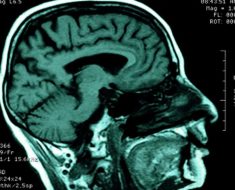The study covered in this summary was published on medrxiv.org as a preprint and has not yet been peer reviewed.
Key Takeaways
-
Inteleukin-6 (IL-6) can be used as a predictive biomarker for delirium in perioperative geriatric patients as it was consistently identified in all studies reviewed.
-
Delirium is often a result of multiple factors that lead to activation and dysregulation of immune proteins and their associated systemic processes such as the inflammatory response and the coagulation cascade.
Why This Matters
-
Delirium poses a significant health burden in the United States with 2 million new cases reported every year.
-
It leads to longer hospital stays, higher cost of care, and increased mortality, particularly among elderly surgical patients.
-
The mechanism of action is largely unknown, hence diagnosis and even treatment is subjective.
-
Thus, the ability to identify proteomic biomarkers will increase diagnostic accuracy leading to a higher standard of care.
Study Design
-
The study was a systematic review of publications between 2016 and 2021.
-
Out of 1172 publications found through a search of five databases, only eight peer-reviewed studies were included in the review.
-
The inclusion criteria: 1) untargeted protein profiling; 2) for biomarkers in delirium; 3) in geriatric patients.
-
Of the eight studies, five used serial peripheral blood samples analyzing plasma and serum. Two studies used CSF (cerebrospinal fluid), which was collected once via lumbar puncture, and one study used both blood and CSF.
-
To identify biomarkers, three studies used mass spectrometry, three used proximity extension assays (PEA), and two used SOMAscan technology.
Key Results
-
IL-6 was the most common proteomic biomarker in all studies reviewed.
-
Other proteins found in more than three studies included complement component C9, antithrombin-III, the cytokine fractalkine (CX3CL1) and chitinase-3-like protein 1 (CHI3L1).
-
The findings suggest that delirium is a result of a systemic response to activation and dysregulation of immune proteins, the inflammatory response, and the coagulation cascade.
Limitations
-
One study used a different diagnostic algorithm for delirium, making it difficult to integrate it with the other studies.
-
Some studies included subsyndromal delirium (SSD) with the delirium cases.
-
None of the studies screened participants for depression.
-
Some studies used serum for analysis instead of plasma. As serum has a lower protein concentration as a result of removal of clotting factors, it was difficult to predict whether removal of these proteins, particularly those that can interact with fibrin, may have had an impact on the findings.
Disclosures
-
The authors received some funding for this work from the Burroughs Wellcome training grant and the National Institutes of Health.
This is a summary of a preprint research study, “Proteomics for the Discovery of Clinical Delirium Biomarkers: A Systematic Review of Major Studies” written by Kwame Wiredu and colleagues from Geisel School of Medicine at Dartmouth College on medRxiv, provided to you by Medscape. This study has not yet been peer reviewed. The full text of the study can be found on medrxiv.org.
For more news, follow Medscape on Facebook, Twitter, Instagram, YouTube, and LinkedIn
Source: Read Full Article





